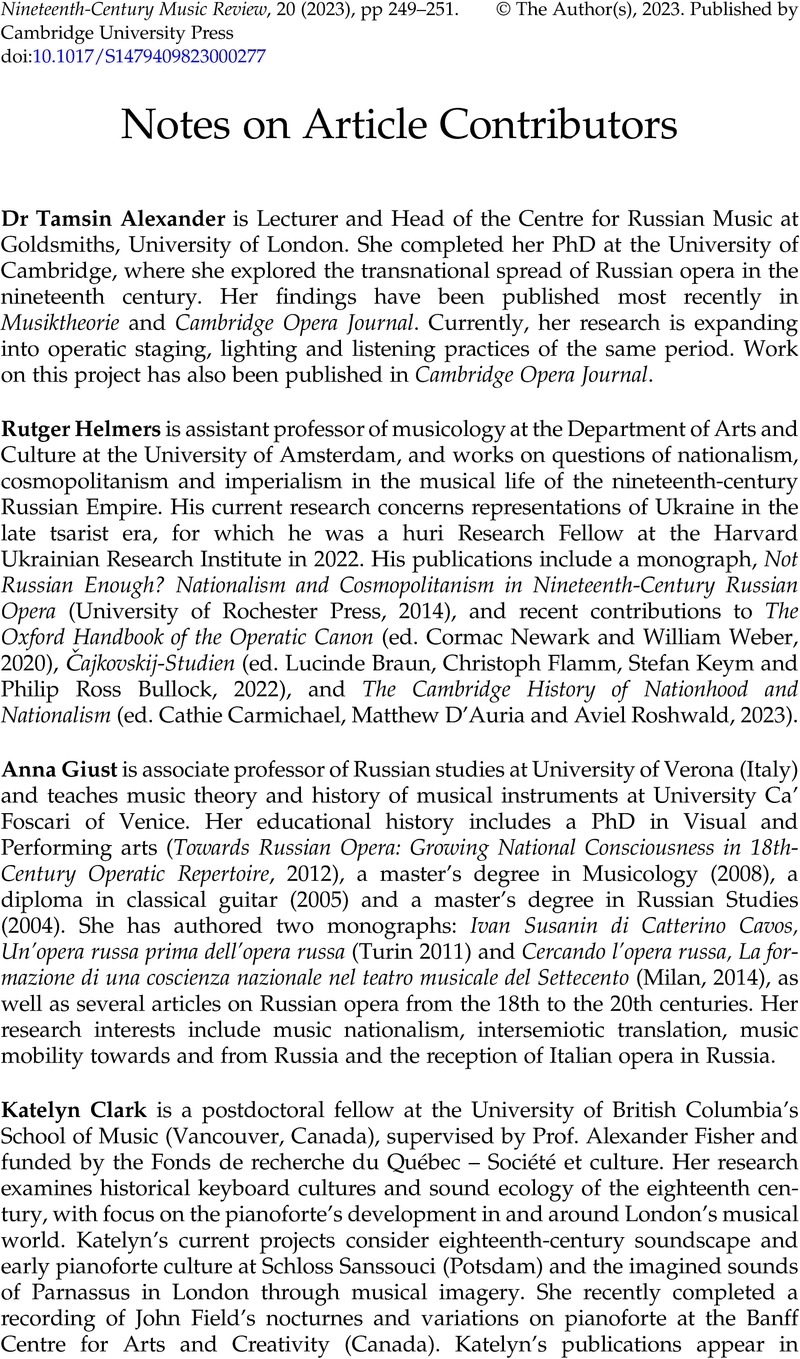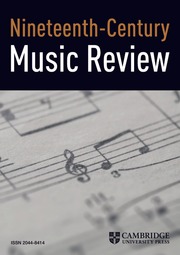No CrossRef data available.
Article contents
Notes on Article Contributors
Published online by Cambridge University Press: 08 September 2023
Abstract
An abstract is not available for this content so a preview has been provided. Please use the Get access link above for information on how to access this content.

- Type
- Notes on Article Contributors
- Information
- Nineteenth-Century Music Review , Volume 20 , Special Issue 2: Tsarist Russia and the Musical World Nineteenth-Century Salonmusik , August 2023 , pp. 249 - 251
- Copyright
- Copyright © The Author(s), 2023. Published by Cambridge University Press



